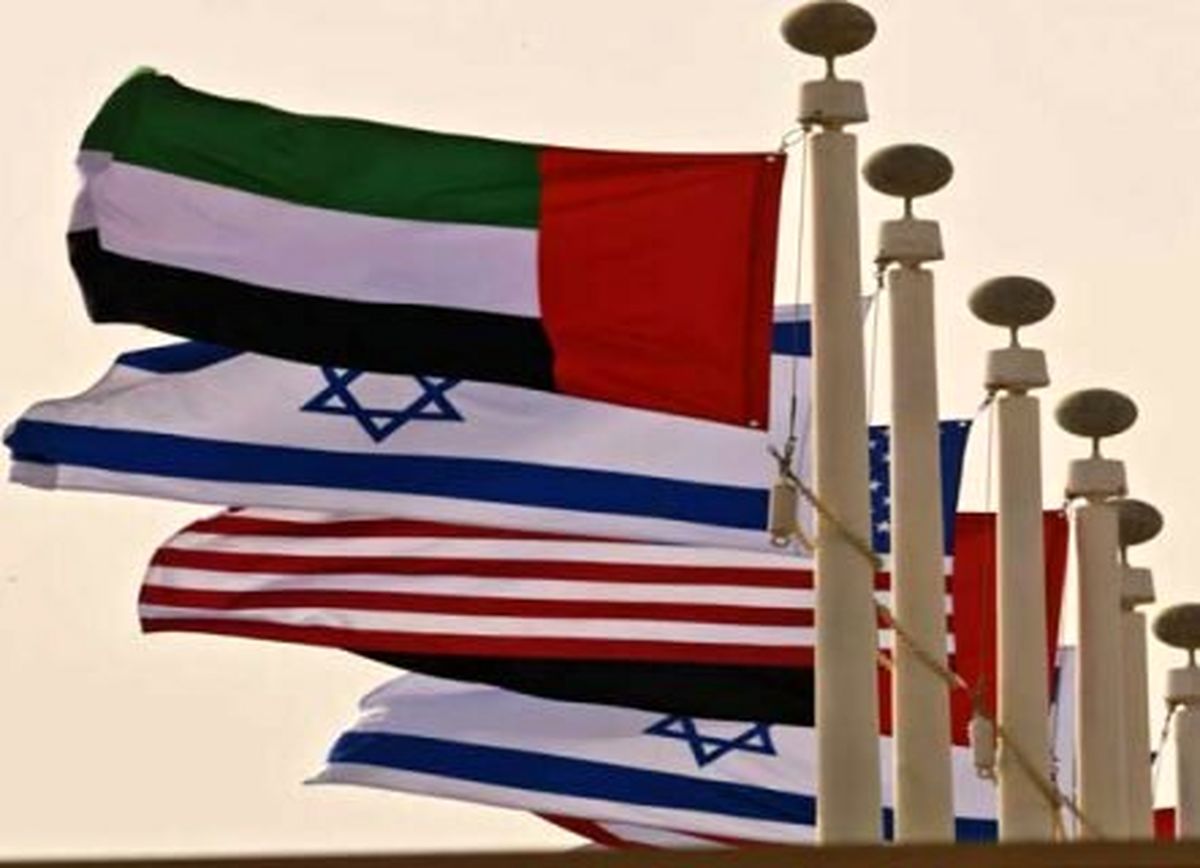The promise for selling 23-billion-dollar worth of military weapons to the UAE dates back to Donald Trump’s presidency, and the related memorandum of understanding was finalized in the month of Dey 1399 (January/February 2020). The former US administration had announced that by 2027 it would deliver a maximum of 50 F-35s, 18 MQ-9B armed UAVs, advanced ammunition and air-to-air and surface-to-air missiles to the UAE.
Purchase of weapons in exchange for recognition of Zionist regime
The UAE’s 23 billion dollars deal with the United States, the main part of which is related to the purchase of F-35 fighter jets, has a “targeted” relationship with the so-called Abraham Accords, of which the UAE is a part.
The previous US administration, which played an important role in advancing the plan to normalize relations of the Zionist regime with some Arab countries, was well aware that the UAE had long sought to purchase F-35 strategic fighters from the United States and was willing to do anything to achieve that target.
The United States used the UAE’s fundamental weakness as an “effective variable” and “efficient stimulus” to publicize Abu Dhabi-Tel Aviv relationship, and told the country that Washington had no problem selling 50 state-of-the-art F-35 fighter jets; provided that the UAE signs the Abraham Accords with the Zionist regime as soon as possible.
On the other hand, the UAE’s attempt to recognize the Zionist regime and establish diplomatic relations and economic, security, cultural, etc. exchanges with the Qods usurper regime cannot be considered anything but inserting a “dagger from behind” into the Palestinian body. The UAE’s entry into the so-called Abraham Accord was a “clear betrayal” of the Palestinian people and disregard of all the known and identified Arab and Islamic principles on the Palestinian question. The UAE officials, while turning their backs on the Palestinian cause and turning a blind eye to Qods and Al-Aqsa Mosque, traded it with a promise that, in less than two years, turned out to be nothing more than a “deception”. The UAE sold Palestine to buy war equipment from the United States! But with this move, not only did it become infamous among the Muslim nations, but also has not yet achieved what it sought through publicizing relations with the Zionist regime, namely the purchase of the advanced and strategic American F-35s.
Today we can clearly understand the bitter “irony” of Netanyahu, the former Prime Minister of the Zionist regime who, after the signing of the Abraham Accords with the UAE addressed the Arab countries that extended a hand of friendship to Tel Aviv and said: They (the Arabs) are normalizing their relations with us, because we are strong and they are weak. The UAE is currently facing a situation that pays off part of its betrayal of the Palestinian because, as it has remained virtually without a share in the agreement for publicizing relations with the Zionist regime. A situation that Bahrain, Morocco and Sudan will be faced soon.
Not only the UAE but also other Arab countries have been played with in the discussion of bilateral agreements with the Zionist regime. Because according to the well-known and long-standing policy of the United States, a president, relying on the policy of carrots and sticks and making various promises, introduces or signs an undertaking or contract with a country, and the next president suspends or cancels it.
Reasons for suspending contract for purchase of F-35
For the suspension of the 23 billion dollars contract for the UAE purchase of military weapons from the United States, two main and basic reasons can be clearly referred to:
The first reason is the commitment of the US administration, whether Democratic or Republican, to maintain Zionist military supremacy in West Asia. This is while the Zionist regime, using all the tools it has in the body of American politics and power, has always insisted on having a significant technological and military superiority over the Arab countries in the region with the help of the United States.
Former United States Secretary of State Mike Pompeo, during a visit to the occupied territories in the month of Mordad 1399 (July/August 2020), simultaneously with the recognition of the Zionist regime by the UAE, explicitly stated that the United States will guarantee that in the context of any potential arms deal between the United States and the UAE, Israel will continue to enjoy military superiority. The United States has a legal obligation to qualify Israel’s military superiority.
Furthermore, Anthony Blinken, the current US Secretary of State in response to the announcement of the suspension of the talks by the UAE, said: We wanted to make sure that our commitments to Israel’s military superiority would be met.
Second, China’s growing influence in the UAE has caused US concern. The Biden administration seeks to reduce its focus on West Asia in favor of focusing on China. Realizing this, the UAE is not only expanding bilateral relations with China, it is also seeking to resolve political and security tensions with Iran. The US administration does not want to provide its most advanced military fighters to a country that has recently expanded bilateral relations with China, including in the field of military and security interactions, and has entered into cooperation with Huawei G5 technology which facilitates and increases the risk of disclosing sensitive military information. Meanwhile, in recent months, China has secretly set up a military base around the city of Abu Dhabi, which has greatly increased US officials’ concern about the UAE’s approach to China.
Concluding point
According to what was said, it seems unlikely that under the situation in which the United States, on the one hand, seeks to maintain military superiority of the Zionist regime in the region and, on the other hand, until concerns about China’s growing influence in the UAE are not resolved, the United States would sign a contract to sell its most advanced bombers to the UAE without any fundamental guarantees.










0 Comments